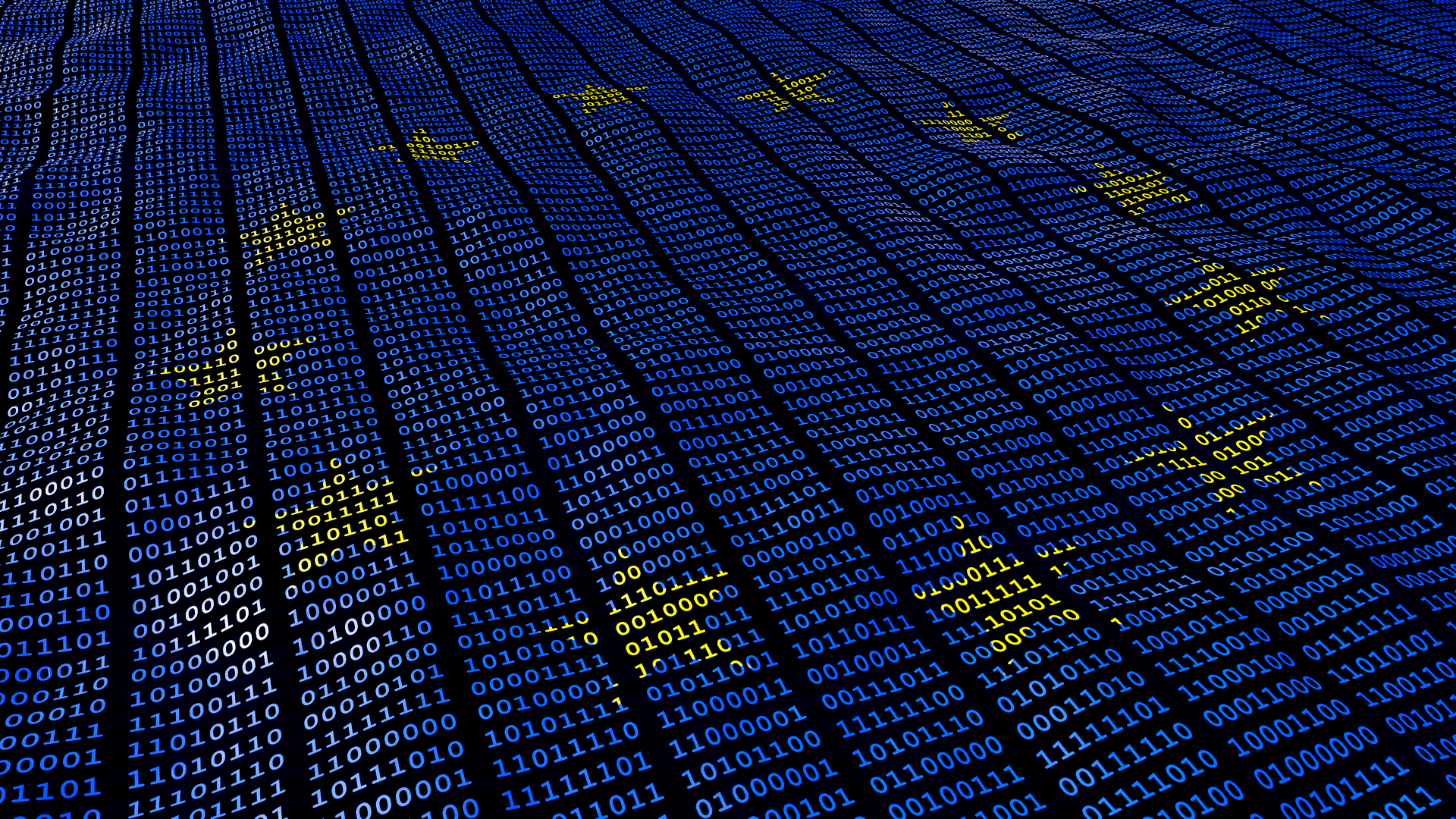Why domain privacy is important, and what it means for your business
Learn how domain privacy can help prevent spammers and hackers from misusing your contact information


Domain privacy is a premium service that replaces your contact information with that of your service provider, therefore securing you against anyone who might be trying to access your details for malicious purposes. Alongside signing up to anonymous hosting from some of the best web hosting services, domain privacy is a simple way to keep your site and data safe.
When building a site with the best website builder, you sign up for a new domain for your site, and must enter your name and contact information in order to confirm your domain registration. This information, however, isn’t private. In fact, the contact details that you enter are visible publicly, and can be accessed by anyone using a WHOIS directory.
As you may have guessed, this can lead to a lot of privacy-related complications. Having your phone number and email address displayed publicly on the internet can expose you to huge amounts of marketing spam. It may even cause you to be targeted for domain hijacking or even identity theft.
In this article, we will discuss what makes domain privacy so important, and why it is a must-have for any business owner with a website.
Domain privacy: What is it?

Most domain names that you find on the internet are registered through an organisation called ICANN (The Internet Corporation for Assigned Names and Numbers). According to ICANN regulations, domain owners must offer up their name and contact information when purchasing a new domain name. This information, in turn, is listed publicly on a database called WHOIS.
Once your information is entered into the WHOIS directory, anyone on the internet can access and view it using a free domain lookup tool. These tools are very common, and easily available to anyone with an internet connection.
Domain privacy is a paid service offered by many domain registrars, including GoDaddy, Namecheap, and Hostinger. It allows you to hide your contact information from the WHOIS directory by replacing your contact information with a random email address and the registrar’s own contact details. Domain privacy is often offered as a premium add-on whenever you purchase a new domain name.
Sign up today and you will receive a free copy of our Future Focus 2025 report - the leading guidance on AI, cybersecurity and other IT challenges as per 700+ senior executives
Why is domain privacy important?

There are a few reasons why ICANN forces every website owner to publicly display their contact details. This practice makes it easier for law enforcement agencies to track people in case there’s illegal activity on their websites. It also helps lawyers hold website owners accountable in cases involving plagiarism and copyright infringement.
However, your contact information isn’t just displayed to law enforcement agencies or courts. In fact, it’s on a public database that almost anyone can access. There are quite a few reasons why some people might try to obtain your contact information from this database.
People might be interested in buying your domain, which is usually harmless. Replying with a simple yes or no is probably enough to make these communications go away. However, others might be trying to send you marketing spam over email or phone. In extreme cases, spamming can get really intrusive, and might seriously hamper your productivity.
Finally, hackers might use your contact information to hijack your website, or target you for phishing scams and identity theft. This is surprisingly common, and very deadly. Should they be able to get a hold of your contact information, they might go as far as to try and convince you to wire them money and provide them with your credit card details. These types of scams range from downright ridiculous to extremely convincing.
Domain privacy add-ons are typically very reasonably priced, from £2 to £20 a year, depending on your domain registrar. If you run a public business, you might wonder if there’s even a point to subscribing to domain privacy, since your contact information is already available publicly on your website. The answer is: maybe.
Hackers and spammers often use dedicated bots to crawl through WHOIS directories in order to find the contact details of people to spam. If your contact details don’t show up on the WHOIS records, there’s a good chance that your business will evade the attention of such systems and therefore be subjected to less spam.
However, if someone with malicious intent really wanted to find your contact information, they might still be able to get it from your website.
What about GDPR?

At this point, you might be wondering about GDPR (General Data Protection Regulation)—the new set of data regulations aimed at protecting your internet privacy—and whether it comes into play in any of this. The good news is, it does.
Those protected under the European Union law will see their contact details redacted in WHOIS listings across the internet. This means that a note saying something like “redacted for privacy” will display in place of your contact information.
However, even if you are eligible for privacy protection through GDPR, your registrar might still be required to “onward share” your contact details with certain “trusted vendors”, such as domain registries. Whether these organisations also honor your privacy will depend on their individual policies and legislative jurisdiction.
In conclusion, if you seriously care about your privacy as a business online, you might still want to subscribe to domain privacy even if you fall under the jurisdiction of GDPR. Up next, we will cover how domain privacy actually works and what factors into it.
How can I acquire domain privacy for my business?

There are two ways you can acquire a domain privacy add-on for your business. You can either get it while purchasing your domain for the first time, or later, as a separate add-on purchase. Either way, you will enjoy the same benefits.
Almost every domain registrar, be it Domain.com, Namecheap, GoDaddy, Hostinger, or someone else, offers domain privacy add-ons to go with its domain registration options. Some of them even go as far as to add a domain privacy option to your cart by default when you are purchasing a new domain. Domain privacy doesn’t usually cost more than £20 a year.
You can also acquire the domain privacy add-on separately at any time or during domain name renewal. However, it’s a good idea to get domain privacy from the get-go, as there are online tools that can allow malicious actors to find historical purchase data for a given domain name, even after domain privacy has been enabled.
Conclusion
Domain privacy is a powerful tool that helps protect website owners from unwanted spam and malicious hackers.
If you are a business owner investing in an expensive website, getting the domain privacy add-on when building your website is very advisable. Even if your contact information is publicly displayed on your website, not having it show up in WHOIS records might protect you from spambots that exclusively check WHOIS data.
Further reading on website builders and web hosting
Learn how to choose a domain name for your website. It's also worth looking into the best anonymous hosting solutions to protect your privacy. It's also worth learning how your web hosting impacts security, and if you're looking for a domain and what to consider when choosing a domain name.
Ritoban Mukherjee is a freelance journalist from West Bengal, India. His work has been published on Tom's Guide, TechRadar, Creative Bloq, IT Pro Portal, Gizmodo, Medium, and Mental Floss. Ritoban is also a member of the National Association of Science Writers.
-
 Google DeepMind CEO Demis Hassabis thinks this one area of the tech industry is probably in an AI bubble
Google DeepMind CEO Demis Hassabis thinks this one area of the tech industry is probably in an AI bubbleNews AI startups raising huge rounds fresh out the traps are a cause for concern, according to Hassabis
-
 Everything you need to know about Google and Apple’s emergency zero-day patches
Everything you need to know about Google and Apple’s emergency zero-day patchesNews A serious zero-day bug was spotted in Chrome systems that impacts Apple users too, forcing both companies to issue emergency patches
